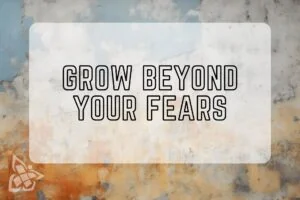Navigating The Path To Recovery Requires More Than Just Willpower
What are the key challenges faced in drug rehab that hinder the success of overcoming substance use disorders?
Most people think rehab is where addiction ends. It isn’t. Rehab is where recovery begins, often with more questions than answers. Behind every intake form and therapy session lies a far bigger truth, addiction is not simply a chemical problem. It’s emotional, environmental, and profoundly human. And that’s why some rehabs fail, not because the people inside them don’t care, but because the system around them doesn’t understand what addiction really is.
The Illusion of Recovery
The idea that rehab “fixes” addiction is one of the biggest misconceptions in recovery culture. Families send loved ones to treatment expecting transformation, not realising that detoxing the body doesn’t detox the pain. A few weeks later, relapse hits, and the blame game starts, the addict wasn’t serious enough, the rehab didn’t work, the program wasn’t long enough.
But recovery isn’t a switch you flip. It’s a process of unlearning, rebuilding, and forgiving. The real work starts after rehab, when structure disappears and life demands show up. The illusion that rehab equals recovery is what keeps the relapse cycle spinning.
Addiction Isn’t a Bad Habit, It’s an Emotional Survival Strategy
Addiction is rarely about wanting to get high. It’s about wanting to stop feeling something, pain, shame, loneliness, fear. Drugs and alcohol become survival tools, not party tricks. They soothe where words fail.
That’s why simply taking away the substance doesn’t heal the person. Many people relapse not because they miss the drug, but because they miss the silence it gave them. The high was a pause button on pain.
Until we treat addiction as emotional pain management, not just dependency, we’re treating symptoms, not causes.
When Rehab Becomes a Business
There are rehabs that save lives, and there are rehabs that sell hope. The difference is intent. South Africa’s rehab industry, like many others, has become a blend of passion and profit. Some centres operate with heart and clinical precision. Others with glossy websites, high prices, and little accountability.
It’s not unusual to find places promising “full recovery in 21 days.” It sounds comforting, but it’s misleading. Addiction doesn’t read calendars. The truth is that recovery timelines are deeply personal, they depend on trauma history, mental health, and support networks.
Families, often desperate, are vulnerable to false promises. They remortgage homes, cash in savings, and hope for a miracle. And when it doesn’t come, they feel cheated, by the system and by hope itself.
Real rehab doesn’t sell guarantees. It builds foundations.
The Missing Piece of the Puzzle
Most addicts aren’t just battling substances, they’re fighting their own minds. Anxiety, depression, trauma, and PTSD often sit quietly behind addiction, whispering old lies, “You’re broken. You’re worthless. You’ll never get better.”
Too many rehab centres still focus solely on detox and behaviour modification without addressing the underlying mental illness. That’s like trying to patch a leaking pipe without turning off the water.
Recovery that ignores mental health is fragile. Without proper diagnosis and integrated care, psychiatry, trauma therapy, medication, patients leave rehab with the same demons, just sober ones. And sober demons can scream louder than drunk ones.
The Stigma That Keeps People Sick
We still talk about addiction in hushed tones, as if it’s a personal failing instead of a public health issue. Society forgives a diabetic but shames a drinker. People with depression are told to get help, addicts are told to get over it.
That stigma kills, not metaphorically, but literally. It keeps people from reaching out. It convinces families to hide addiction like a dirty secret. It isolates the very people who most need connection.
Recovery starts when shame ends. But as long as we treat addicts as moral failures rather than patients in pain, many will keep suffering in silence.
When Sobriety Has a Price Tag
Addiction doesn’t care how much money you have, but recovery does. Private treatment in South Africa can cost more per month than most people earn in a year. Public rehab? Often underfunded, overcrowded, and with waiting lists that stretch for months.
Medical aid coverage helps, but only to a point. Some schemes cover 21 days, others less. Pre-authorisation can take weeks, and by then, the window for help may have closed.
Families often face impossible choices, pay for shorter stays, cut back on therapy, or take on debt to buy time. The cost of recovery becomes another trauma layered onto the one that started it all.
Until rehab access becomes equitable, we’ll keep treating addiction as a luxury for the few, not a right for the many.
What Actually Works, Science, Honesty, and Connection
The best rehab isn’t about comfort, it’s about clarity. It’s not the view, the food, or the yoga that saves lives, it’s the honesty, structure, and human connection inside those walls.
Evidence-based treatments like Cognitive Behavioural Therapy (CBT), Medication-Assisted Treatment (MAT), and trauma-informed care remain the backbone of effective recovery. They don’t promise miracles, but they offer something better, tools.
Good rehabs teach self-awareness, how to recognise triggers, how to sit with discomfort, and how to build a life that makes relapse less tempting. They blend science with empathy. They listen. They don’t just detox the body, they help rebuild the person.
Recovery isn’t about perfection. It’s about progress, slow, messy, and real.
Relapse Isn’t Failure, It’s Feedback
One of the hardest truths in addiction treatment is that relapse is part of recovery for many. It doesn’t mean failure, it means learning. It shows where the cracks are, what was missed, what still hurts, what still needs healing.
We treat relapse like a moral sin instead of a clinical symptom. The result? Shame. And shame feeds addiction like oxygen feeds fire.
What works is preparation, relapse prevention planning, identifying triggers, building coping mechanisms, and having an aftercare network ready to catch you. The first year post-rehab is the most dangerous, the difference between relapse and recovery often comes down to one thing, continued support.
Healing doesn’t happen in 21 days. It happens over thousands of small decisions, one sober moment at a time.
The Power of Belonging
Addiction isolates. Recovery reconnects. One of the most powerful tools in rehab isn’t medication or therapy, it’s people. Peer groups like Narcotics Anonymous, Alcoholics Anonymous, and newer secular support circles create a sense of belonging that professional treatment alone can’t replace.
There’s power in hearing, “Me too.” It dismantles shame and builds solidarity.
Family therapy adds another layer, helping rebuild trust, communication, and boundaries. Because recovery isn’t a solo act, it’s a team effort.
Community support transforms the narrative from “you have a problem” to “we have a solution.” That’s where real healing happens, in connection, not isolation.
Rehab Is Only the Beginning
Rehab isn’t the end of addiction, it’s the beginning of recovery. The people who make it long-term aren’t the ones who had the most expensive care, they’re the ones who built a life around staying sober. They found purpose, community, and accountability.
Life after rehab is raw. It’s filled with triggers, the same streets, same friends, same loneliness. But it’s also filled with new chances to choose differently. That’s the real miracle of recovery, not perfection, but persistence.
The world often expects addicts to “get it together” once they leave rehab. But the truth is, they’re still learning to walk again, mentally, emotionally, spiritually. What they need isn’t pressure. It’s patience.
Fixing What’s Broken, Together
If there’s one thing rehab teaches us, it’s that addiction is a human story, not a statistic. Every relapse, every recovery, every family torn apart or rebuilt tells us something about who we are as a society.
Rehab works when it’s honest, when it treats addiction as illness, not sin. It fails when it becomes a business, a shortcut, or a box-ticking exercise.
We don’t need more centres, we need better ones.
We don’t need quicker cures, we need deeper compassion.
Addiction thrives in isolation. Recovery thrives in truth. And in a world that often looks away, the most radical thing we can do, as families, professionals, and communities, is keep looking toward the ones still fighting, still trying, still choosing to recover one day at a time.
What are the key signs that indicate you might be struggling with an addiction to drugs or alcohol?
How can experiencing a relapse in addiction recovery ultimately contribute to achieving lasting success in sobriety?

Alcohol Detox Is Not a Countdown and Rushing It Is Dangerous When people ask how…

Drug recovery is so much more than just stopping using drugs or alcohol. There are…

One of the most persistent and damaging beliefs in addiction treatment is the idea that…








